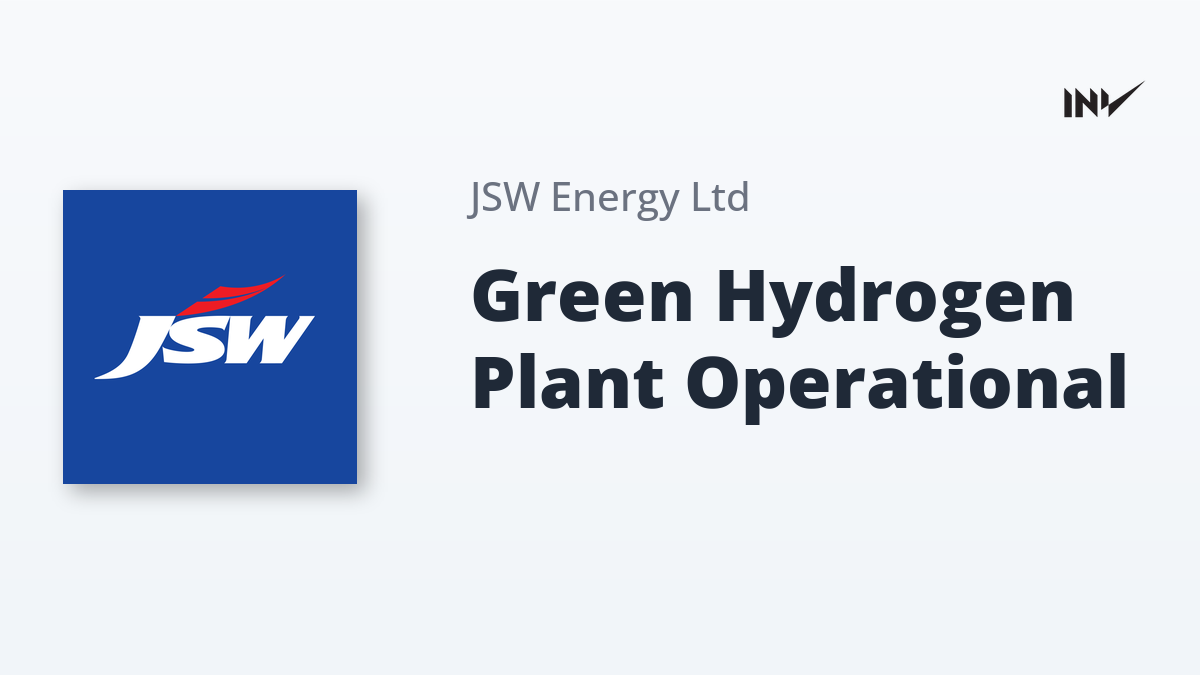JSW Energy has commissioned India’s largest green hydrogen plant at its JSW Steel facility in Vijayanagar, Karnataka. The plant will supply 3,800 tons per annum (TPA) of green hydrogen and 30,000 TPA of green oxygen to JSW Steel for low-carbon steel production. This project aligns with India’s clean energy transition goals and reinforces JSW Energy’s commitment to sustainability.
Green Hydrogen Plant Commissioned
JSW Energy has announced the successful commissioning of its first, and India’s largest, green hydrogen manufacturing plant. The plant is located at the JSW Steel facility in Vijayanagar, Karnataka, and marks a significant step in the company’s clean energy initiatives. The project operates under the Production Linked Incentive Scheme – Tranche I.
Production Capacity and Agreement
The commissioned plant has a production capacity of 3,800 tons per annum (TPA) of green hydrogen. Additionally, it will produce 30,000 TPA of green oxygen, which will be supplied to JSW Steel for the production of low-carbon steel. This agreement is part of a seven-year offtake agreement with JSW Steel Ltd.
Expansion Plans
JSW Energy has also signed a Memorandum of Understanding with JSW Steel Ltd to progressively increase the supply of green hydrogen to 85,000–90,000 TPA and green oxygen to 720,000 TPA by 2030. This initiative supports India’s goal of achieving approximately 5 MTPA of green hydrogen production by 2030.
Leadership Perspective
According to Mr. Sharad Mahendra, Joint Managing Director and CEO of JSW Energy, this project is a key milestone in India’s clean energy journey. It reflects JSW Energy’s commitment to supporting India’s transition towards a low-carbon economy and decarbonization of sectors like steel.
Overall Capacity
JSW Energy currently has a total locked-in generation capacity of 30.5 GW, consisting of 13.3 GW operational capacity, 12.5 GW under construction (thermal and renewable), and 150 MW under acquisition (hydro). The company aims to achieve 30 GW generation capacity and 40 GWh of energy storage capacity by FY2030, and to achieve Carbon Neutrality by 2050.
Source: BSE





